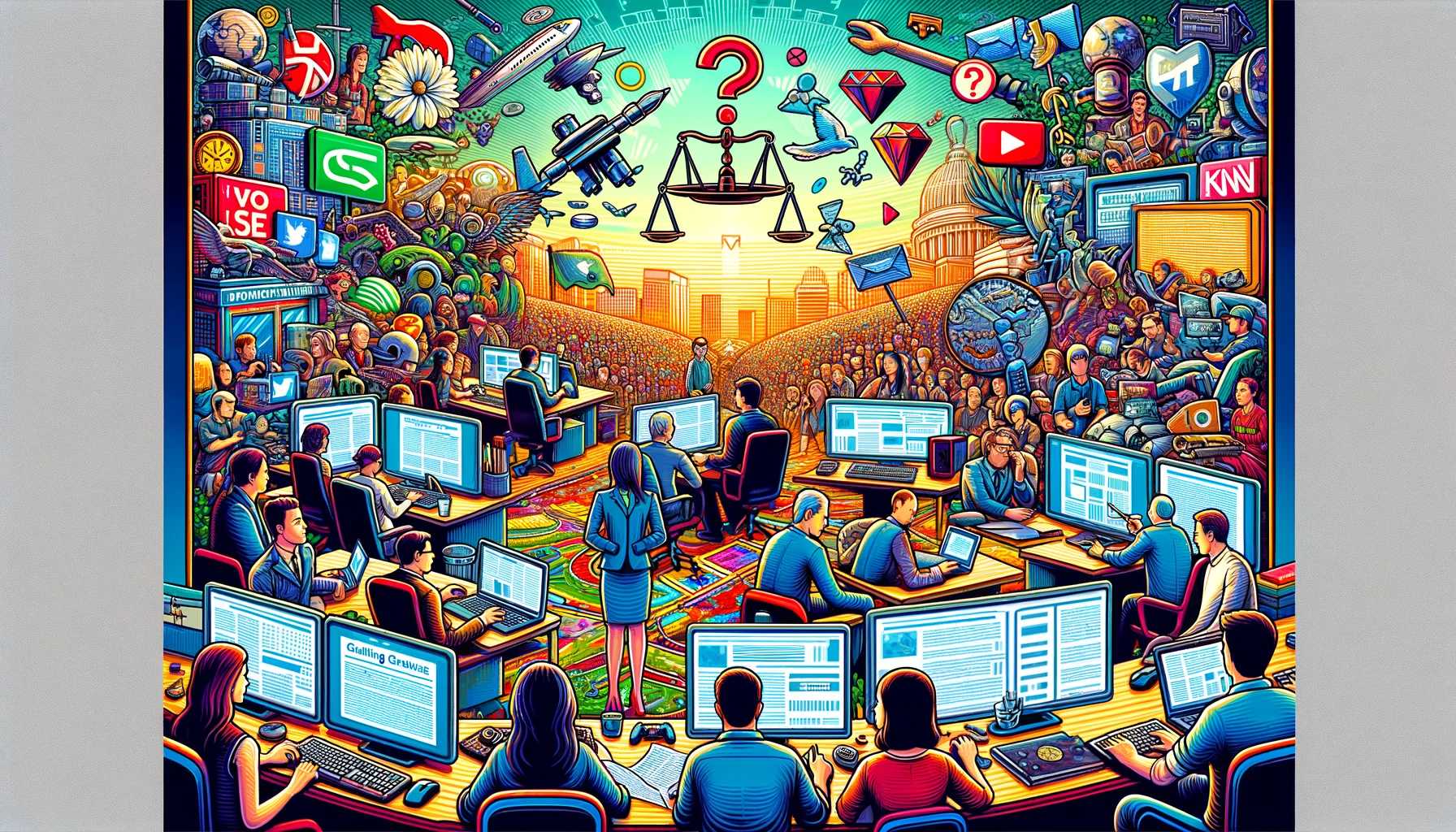Ah, gaming journalism – a realm where passion for games meets the rigors of reporting. It's a field that's evolved alongside the gaming industry itself, transforming from a niche hobbyist pursuit to a multi-billion-dollar global industry. But with great power comes great responsibility, and gaming journalists face a unique set of ethical dilemmas, responsibilities, and challenges in their quest to inform and entertain their audience.
First, let's talk ethics. Like all forms of journalism, gaming journalism is bound by a code of ethics designed to ensure accuracy, fairness, and transparency. But in the fast-paced world of gaming, where hype and excitement can often cloud judgment, sticking to these principles isn't always easy. From conflicts of interest to the temptation to prioritize clicks over accuracy, gaming journalists must constantly navigate a minefield of ethical pitfalls.
One of the most common ethical dilemmas facing gaming journalists is the issue of disclosure. With the rise of influencer culture and sponsored content, it's not uncommon for journalists to have personal or financial ties to the subjects they cover. Disclosing these ties is essential to maintaining the trust of readers and ensuring transparency in reporting. But striking the right balance between disclosure and maintaining journalistic independence can be tricky, especially when your paycheck depends on maintaining good relations with publishers and developers.
Then there's the responsibility of gaming journalists to their audience. In an age of misinformation and fake news, gamers rely on journalists to separate fact from fiction and provide them with accurate and unbiased information. This means doing your due diligence when it comes to fact-checking, verifying sources, and presenting multiple perspectives on a story. It also means being willing to hold developers and publishers accountable for their actions, even when it's unpopular or controversial.
But perhaps the biggest challenge facing gaming journalists today is the increasingly toxic and polarized nature of online discourse. From death threats and doxxing to harassment and abuse, journalists who dare to criticize a beloved game or developer often find themselves the target of vicious attacks from fans. This toxic culture not only makes it difficult to have honest and open conversations about games but also discourages journalists from speaking out for fear of reprisal.
Despite these challenges, gaming journalism remains as vital as ever. In an industry as fast-paced and ever-changing as gaming, journalists play a crucial role in helping players make informed decisions about which games to play, which developers to support, and which controversies to pay attention to. And while the road ahead may be fraught with ethical dilemmas and challenges, the passion and dedication of gaming journalists ensure that the industry will continue to thrive.
As gaming journalism continues to evolve, it's crucial for journalists to adapt to the changing landscape and embrace new technologies and platforms. With the rise of social media and streaming services, gamers have more ways than ever to consume news and content about their favorite games. This presents both opportunities and challenges for journalists.
On one hand, social media platforms like Twitter and Reddit can be valuable tools for connecting with audiences, sharing breaking news, and engaging in conversations with readers. On the other hand, they can also be breeding grounds for misinformation, harassment, and abuse. Navigating this digital minefield requires journalists to be vigilant about fact-checking, verifying sources, and maintaining a professional and respectful online presence.
Streaming platforms like Twitch and YouTube have also become increasingly important in the gaming journalism landscape. Many journalists now use these platforms to livestream gameplay, host interviews with developers, and provide commentary on the latest gaming news. This new form of interactive journalism allows journalists to connect with their audience in real-time and provides a more immersive and engaging experience for viewers.
However, streaming also raises its own set of ethical questions. For example, should journalists disclose if they receive financial support from a developer or publisher to stream their game? Should they accept free copies of games or other perks in exchange for coverage? These are questions that journalists must grapple with as they navigate the ever-changing landscape of gaming journalism.
Another challenge facing gaming journalists is the rise of misinformation and fake news. With the proliferation of clickbait headlines and sensationalist reporting, it can be difficult for readers to separate fact from fiction. This is especially true in the gaming industry, where rumors and speculation often run rampant. In order to combat this, journalists must adhere to the highest standards of accuracy and integrity in their reporting, and be willing to correct mistakes and apologize for errors when they occur.
Ultimately, gaming journalism is a labor of love – a passion project for those who live and breathe games. While it may not always be easy, and the road may be fraught with challenges, the rewards are more than worth it. Whether it's breaking a big story, uncovering a hidden gem, or simply sharing their love of gaming with the world, gaming journalists play a vital role in shaping the future of the industry.
So here's to the gaming journalists – the unsung heroes of the gaming world. May you continue to shine a light on the stories that matter, hold the powerful to account, and inspire the next generation of gamers and journalists alike.
